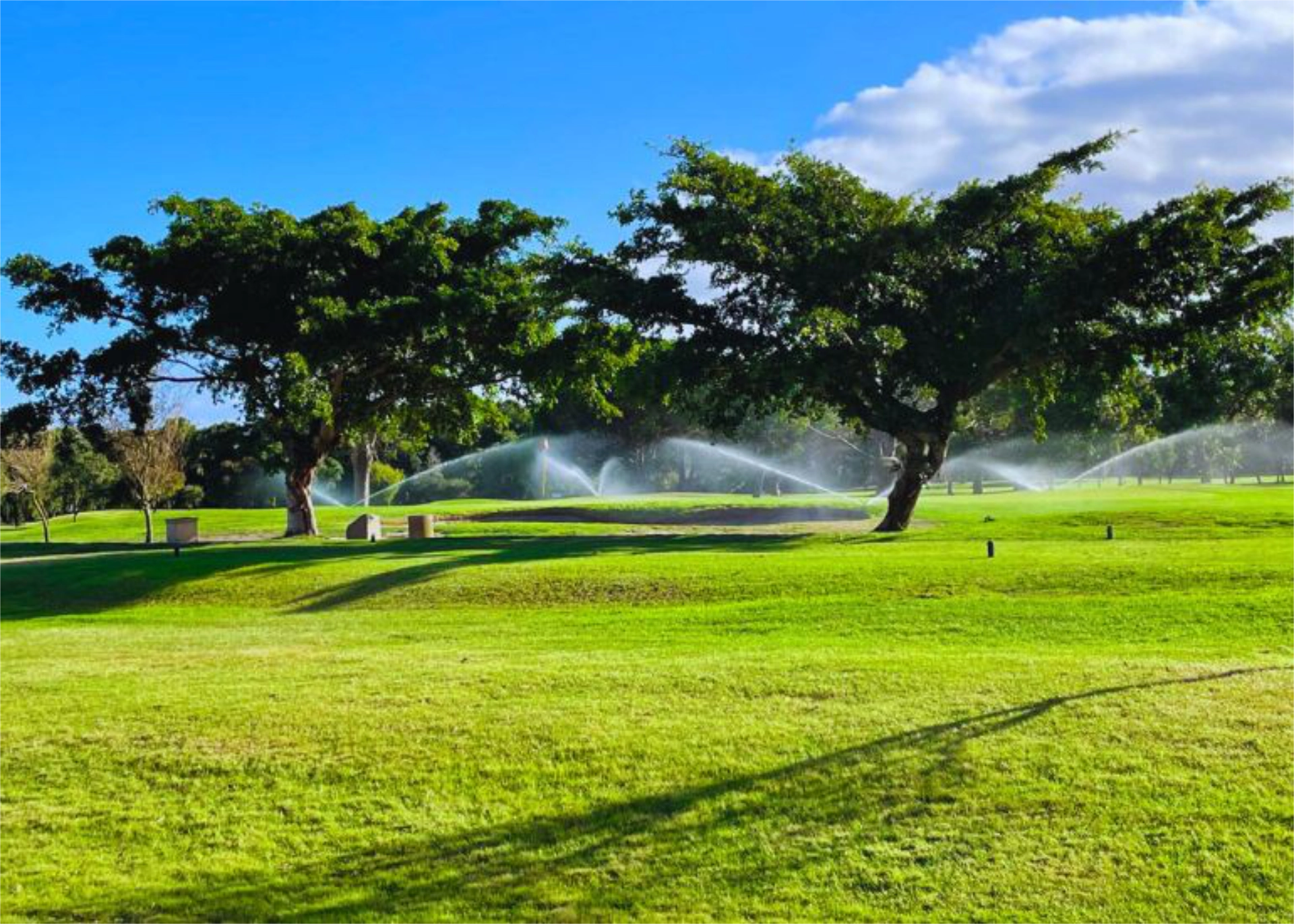When Summer Turns Up the Heat
Summer in the Western Cape arrives with a familiar rhythm, dry winds, rising temperatures, and long irrigation hours. For anyone managing landscapes, estates, or home gardens, this season demands more than just switching the system back on. It’s a test of timing, water wisdom, and technical precision.
We sat down with Cameron, one of TMI’s irrigation designers for the Western and Northern Cape, to unpack the biggest seasonal challenges, and how a few smart habits can make all the difference.
“Summer is when everything gets a little hectic,” Cameron shares. “Keeping clients happy while managing the pressure of the season, and the weather, can be a balancing act.”
Efficiency vs. Evaporation: The Summer Balancing Act
High evaporation rates and strong winds can reduce irrigation efficiency by up to 50%, meaning half of your water might never reach the soil.
Best Practice: Schedule watering for early mornings or late evenings to minimise evaporation losses. Timing, therefore, becomes crucial. Early mornings or late evenings aren’t just pleasant times to be outside, they’re when your system can do its best work.
Pro Tip: Avoid watering during peak winds, it not only wastes water but also leads to uneven coverage and stressed turf.
And then there’s the quiet threat in dry, windy regions, called salt buildup. As water evaporates, it leaves behind minerals that accumulate in the soil, impacting plant health.
“As water evaporates, it leaves behind salts that accumulate in the soil and impact plant health,” Cameron explains. “We use a technique called leaching, occasional over-irrigation to flush salts away, but it’s tough on systems designed to be water-wise.”
After Winter: What to Check Before You Hit ‘Start’
A good irrigation season starts with a solid system inspection.
After the long winter, most systems need more than just a switch-on. A full system check can uncover hidden issues, leaks, damaged cables, worn seals, before they turn into bigger problems in peak season.
Common post-winter issues to look out for:
- Perished rubber seals and cracked diaphragms (look for puddles or constant leaks)
- Geckos or insects shorting controller boards (a few mothballs can save the day!)
- Damaged communication cables or buried wires
Cameron’s Tip:
“Don’t wait until the first heatwave to test your system. Do a full run-through now, check each station, observe pressure consistency, and listen for anything unusual.”
He also stresses the importance of filtration, especially when working with groundwater or borehole sources.
“The water chemistry can change through the year. If your filters aren’t rated correctly or not maintained, blockages and clogging are inevitable.”
Sound, Sight, and Sense, the Three Quick Checks
When it comes to keeping an eye on your irrigation, Cameron’s advice is simple: listen, look, and log. Irrigation systems have a language of their own, if you know how to listen.
“If it doesn’t sound right, it’s not right,” Cameron says.
“A whistling dripline, a humming pump, or sputtering spray pattern are all early warning signs.”
Doing a full system walkthrough, running each station and observing spray patterns, coverage, and water pooling, gives you a quick performance snapshot.
Three quick checks for every property:
- Sound: Identify leaks or air blockages through unusual noises.
- Sight: Observe spray direction and coverage uniformity.
- Log: Keep a quick checklist of areas showing underperformance, it’ll save you time during peak season troubleshooting.
This type of visual and auditory audit, done regularly, can prevent bigger breakdowns down the line.
Tools for Tough Conditions
The Western Cape’s unique climate demands smarter irrigation design. Systems designed for inland or humid areas often struggle here. Cameron recommends a few system upgrades that balance reliability and efficiency:
Pressure-regulated spray heads – reduce water drift and improve distribution.
Smart controllers – adjust schedules automatically based on weather and evapotranspiration.
High-quality filtration – especially when using borehole or reclaimed water.
“Smart control systems are no longer a luxury,” he adds. “They’re the future of efficient irrigation. You can manage your system remotely, fine-tune runtimes, and react to weather shifts instantly.”
Looking Ahead: Smarter Water, Stronger Systems
Ultimately, Cameron’s message is clear: success in summer irrigation isn’t about doing more, it’s about doing it smarter. The most effective systems are the ones where timing, maintenance, and monitoring all work in sync.
For property owners and grounds managers, now is the moment to prepare. A quick system audit, a clean set of filters, and a few schedule tweaks can mean the difference between healthy, thriving landscapes and weeks of costly repairs.
Need Help Getting Summer-Ready?
Our regional design and service teams can help you:
- Audit and optimise your irrigation system
- Plan smarter watering schedules
- Upgrade to efficient, climate-ready solutions
Get in touch with TMI today, and let’s make this summer your most water-wise season yet.
